
Keynote Speakers
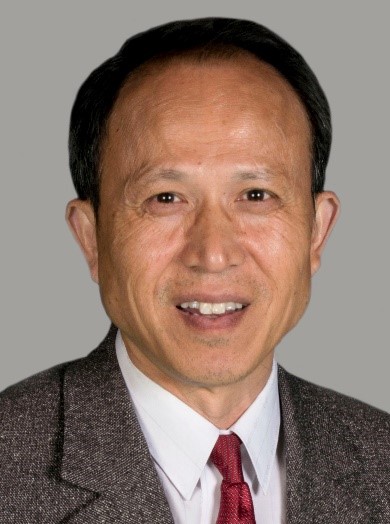
Prof. Jiangzhou Wang
Fellow of the Royal Academy of Engineering, UK (FREng), IEEE Fellow, IET Fellow, University of Kent, UK
Profile: Prof. Jiangzhou Wang is a Professor with the University of Kent, U.K. His research interest is in mobile communications. He has published more than 500 papers and five books. He was a recipient of the 2024 IEEE Communications Society Fred W. Ellersick Prize and the 2022 IEEE Communications Society Leonard G. Abraham Prize. He was the Technical Program Chair of the 2019 IEEE International Conference on Communications (ICC2019), Shanghai, Executive Chair of the IEEE ICC2015, London, and Technical Program Chair of the IEEE WCNC2013. He is/was the editor of multiple international journals, including IEEE Transactions on Communications from 1998 to 2013. Professor Wang is an International Member of the Chinese Academy of Engineering (CAE), a Fellow of the Royal Academy of Engineering (RAEng), U.K., Fellow of the IEEE, and Fellow of the IET.
Speech Title: mmWave/THz Integrated Communications and Sensing
Abstract: Integrated communications and sensing (ISAC) has become very popular for the next generation mobile communications. This seminar will introduce the concept and challenges of using mmWave/THz for ISAC. The latest research results in mmWave/THz ISAC will be presented in conjunction with hybrid beamforming and rate splitting multiple access technologies.
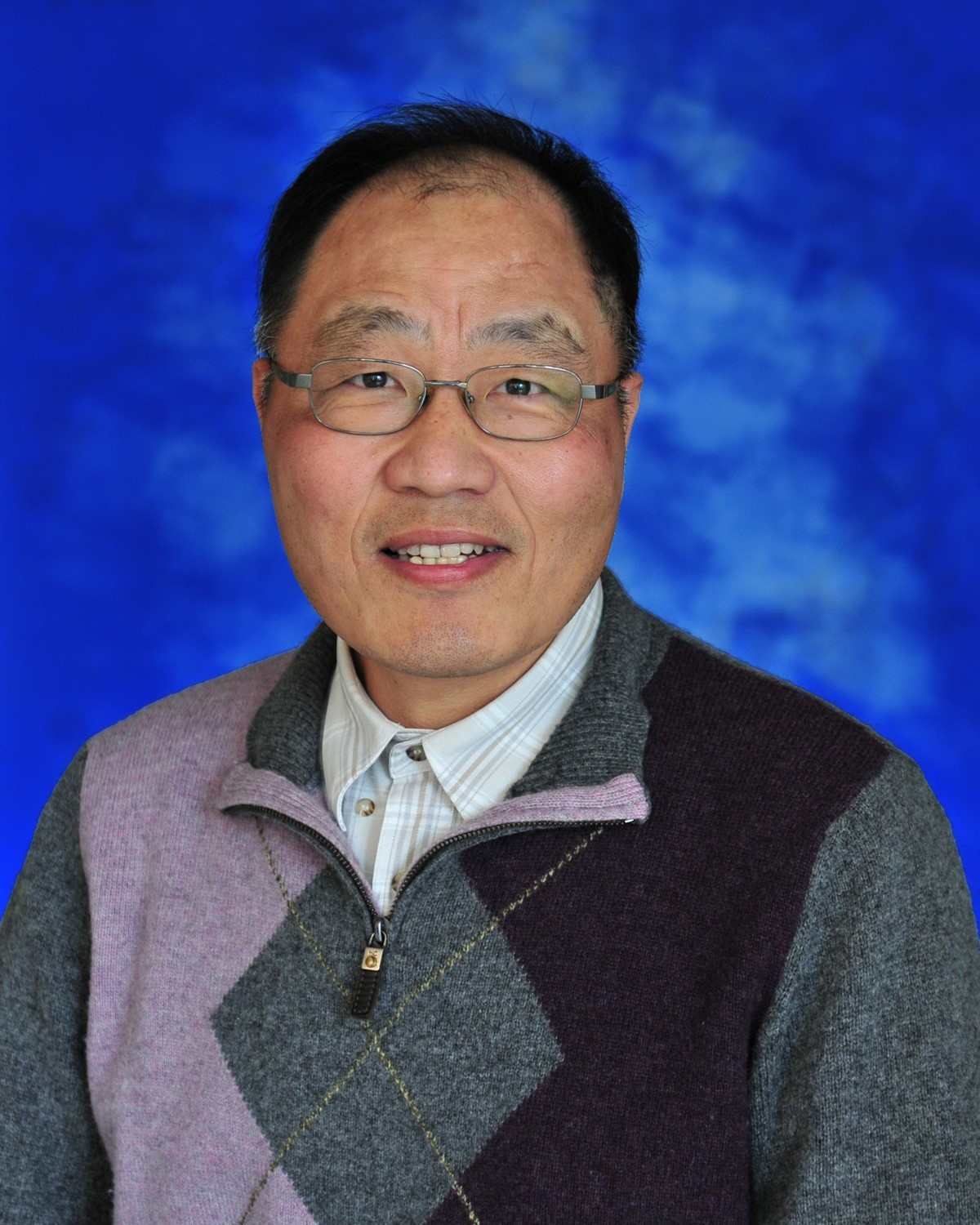
Prof. Chong-Yung Chi
IEEE Fellow, AAIA & AIIA Fellow, National Tsing Hua University, China
Profile: Prof. Chong-Yung Chi received a B.S. degree from Tatung Institute of Technology, Taipei, Taiwan in 1975, a M.S. degree from National Taiwan University, Taipei, Taiwan in 1977, a Ph.D. degree from the University of Southern California, Los Angeles, CA, USA, in 1983, all in electrical engineering. He is currently a Professor at National Tsing Hua University, Hsinchu, Taiwan. He has published more than 240 technical papers (with citations more than 7500 times by Google-Scholar), including more than 90 journal papers (mostly in IEEE TRANSACTIONS ON SIGNAL PROCESSING), more than 140 peer-reviewed conference papers, 3 book chapters, and 2 books, including a textbook, Convex Optimization for Signal Processing and Communications: From Fundamentals to Applications, CRC Press, 2017 (which has been popularly used in a series of invited intensive short courses at 10 top-ranking universities in Mainland China since 2010 before its publication). His current research interests include signal processing for wireless communications, convex analysis and optimization for blind source separation, biomedical and hyperspectral image analysis, graph-based learning and signal processing, and data security and privacy protection in machine learning. Dr. Chi received the 2018 IEEE Signal Processing Society Best Paper Award, entitled “Outage Constrained Robust Transmit Optimization for Multiuser MISO Downlinks: Tractable Approximations by Conic Optimization,” IEEE Transactionson on Signal Processing, vol. 62, no. 21, Nov. 2014. He has been a Technical Program Committee member for many IEEE-sponsored and cosponsored workshops, symposiums, and conferences on signal processing and wireless communications, including Co-Organizer and General Co-Chairman of the 2001 IEEE Workshop on Signal Processing Advances in Wireless Communications (SPAWC). He was an Associate Editor (AE) for four IEEE Journals, including IEEE TRANSACTIONS ON SIGNAL PROCESSING for 9 years (5/2001-4/2006, 1/2012-12/2015), and he was a member of Signal Processing Theory and Methods Technical Committee (SPTM-TC) (2005-2010), a member of Signal Processing for Communications and Networking Technical Committee (SPCOM-TC) (2011-2016), and a member of Sensor Array and Multichannel Technical Committee (SAM-TC) (2013-2018), IEEE Signal Processing Society.
Speech Title: Convex Optimization Aided Artificial Intelligence: Unsupervised HSI Denoising and Super-Resolution
Abstract: Mathematical optimization, such as convex optimization (CVX-opt), that has been extensively applied in sciences and engineering over the last decades. Artificial Intelligence (AI), such as Machine Learning (ML) and Deep Learning (DL), has been pervasive not only in sciences and engineering, but also in our daily life. Both CVX-opt and AI currently perform outstandingly and independently by themselves, in spite of some existing challenges yet to be resolved. For the former, without need of training data, a specific mathematical model and problem formulation are required, while optimal solutions or acceptable approximate solutions can always be practically obtained, together with insightful performance characteristics and unique properties that may be disclosed, and used as the guidelines for the practical algorithm implementation and development. For the latter, big training dataset and tremendous computing complexity are frequently required, though neither math model nor intricate mathematics involved, hence no tractable performance/convergence analysis either. In this speech, we will address their intriguing fusion, potentially with fantastic benefits in learning performance. Specifically, we will presentCVX-opt aided AIby the following application instances:
1. Unsupervised Hyperspectral Image (HIS) Denoising
2. Unsupervised HIS Super-Resolution
Finally, we draw some conclusions as well as some future research explorations.
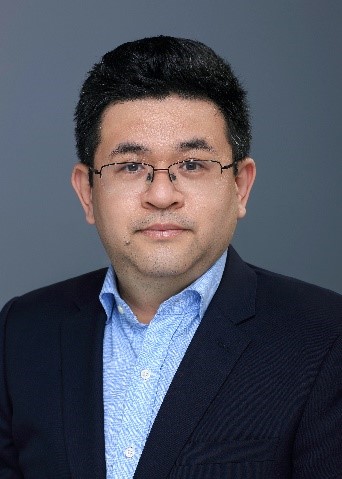
Prof. Hongzhi Wang
IEEE Senior member, Harbin Institute of Technology, China
Profile: Prof. Hongzhi Wang, Professor, PH.D. supervisor, the head of the massive data computing center, the secretary general of ACM SIGMOD China, outstanding CCF member, IEEE Senior member, a standing committee member CCF databases, and a member of CCF big data committee. Research Fields include big data management and analysis, database systems, knowledge engineering, and data quality. He was a "starring track" visiting professor at MSRA and a postdoctoral fellow at the University of California, Irvine. Prof. Wang has been PI for more than 10 national or international projects including NSFC key projects, NSFC projects, and National Technical support projects, and co-PI for more than 10 national projects include 973 projects, 863 projects and NSFC key projects. He also serves as a member of the ACM Data Science Task Force. He has won the First Natural Science Prize of Heilongjiang Province, the MOE Technological First Award, the Microsoft Fellowship, the IBM Ph.D. Fellowship, and the award of "The Chinese Excellent Database Engineer". His publications include over 300 papers in journals and conferences such as VLDB Journal, IEEE TKDE, VLDB, SIGMOD, ICDE, SIGIR, 6 books, and 6 book chapters. His Ph.D. thesis was elected to be an outstanding Ph.D. dissertation of CCF and Harbin Institute of Technology. He serves as the reviewer of more than 20 international journals including VLDB Journal, IEEE TKDE, and PC members of over 50 international conferences including SIGMOD, VLDB, KDD, ICML, NeurpIS, ICDE, etc. His papers were cited more than 4000 times.
Speech Title: AI-driven Big Data Management
Abstract: Artificial intelligence (AI) plays a unique role in understanding and optimizing complex systems. As a typical artificial complex system, AI brings new opportunities for big data management system optimization. However, the AI-driven complex systems optimization brings many challenges such as scarce samples, complex models, and difficulty in explanation. This talk will introduce the basic idea for AI-driven big data management systems. Based on the researchAI-driven big data management systems, this talk will introduce the results in a series of problems such as knob tuning, cardinality estimation, storage structure decision, and index selection, and further discuss the future research direction.
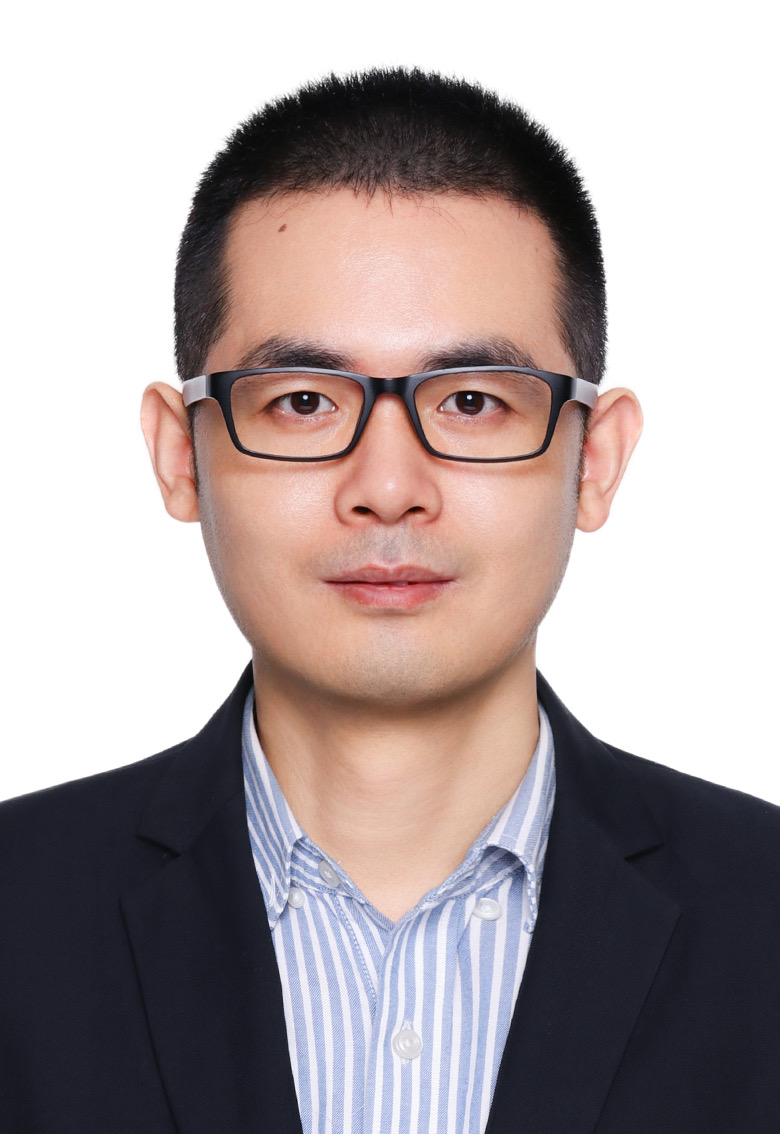
Prof. Xiuxian Li
IEEE Senior Member, Tongji University, China
Profile: Prof. Xiuxian Li is a professor with National Key Laboratory of Intelligent Autonomous Systems, College of Electronic and Information Engineering, and Shanghai Research Institute for Intelligent Autonomous Systems, Tongji University, Shanghai, China. He received the Ph.D. degree in mechanical engineering from HKU, Hong Kong, in 2016. From 2016 to 2020, he has been a research fellow at NTU, Singapore, and he has also been a senior research associate at CityU, Hong Kong, in 2018. He held a visiting position at King Abdullah University of Science and Technology, Saudi Arabia, in Sept. 2019. He is in the finalist of IEEE RCAR 2018 and an associate editor of Journal of Control and Decision. His research interests include distributed control and optimization, game theory, and machine learning, as well as applications to autonomous vehicles. He has published more than 50 SCI journal papers, and is a member of AAAI, CICC, CAAI, and a senior member of CAA and IEEE.
Title: Online Optimization under Randomly Corrupted Attacks
Abstract: Online optimization is increasingly employed in various applications, including recommendations and target tracking. Yet, most existing algorithms in this field are based on trustful information, such as reliable gradient information. Although some algorithms cater to adversarial contexts, their decisions ultimately rely on consistent feedback from the environment, albeit within tolerable noise levels or budget constraints. However, there are instances where trustful gradients might not be available, for example, when malware tampers with data, resulting in degraded model performance. To take into account the security issue in online optimization, the effect of randomly corrupted attacks, which can corrupt gradient information arbitrarily, are reported in this talk.
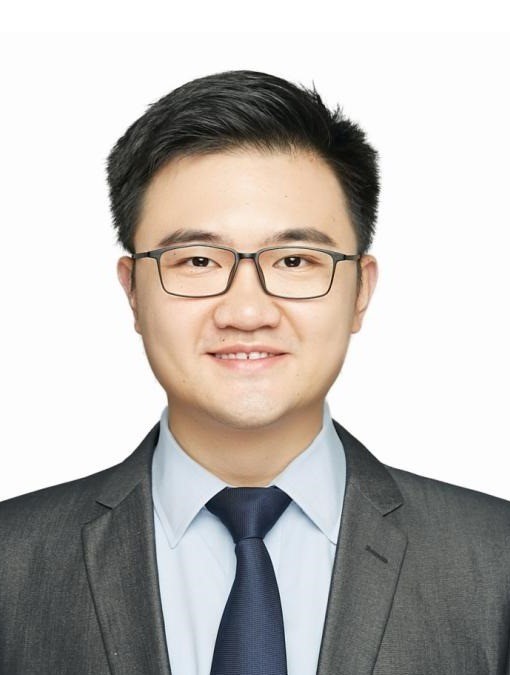
Prof. Xi Wu
Southeast University, China
Profile: Director of the Department of Electric Power Engineering, Southeast University, Jiangsu Province "Blue Project" project, Southeast University "Best Young Scholar" winner, China Machinery Industry Education Association of Power system and automation teaching Committee, senior member of IEEE, IEEE PES Protection and Control Committee (China) executive director, Visiting scholar, Illinois Institute of Technology, USA. He won the second prize of Science and Technology of Jiangsu Province (row 2), the second prize of science and technology Progress of electric power construction (row 1), and the third prize of science and technology progress of Jiangxi Province (row 3).
Title: Data-driven Sub-synchronous Oscillation Source Localization and Suppression Techniques for Wind-integrated Power Systems
Abstract: With the rapid increase in wind power penetration and the extensive application of high-power electronic devices, the issue of sub-synchronous oscillation (SSO) has exhibited complex characteristics such as multiple sources, various forms, time-varying frequencies, and wide-area propagation. Currently, multiple SSO incidents have occurred in wind farms located in Texas, USA; Buffalo Ridge, USA; Guyuan, North China; Hami, Xinjiang, China; and Nan'ao, Guangdong, China. SSO incidents can potentially damage renewable energy equipment and cause large-scale disconnection of renewable energy from the grid. In severe cases, it may trigger cascading failures, leading to large-scale blackouts, thereby posing a significant threat to the safe and stable operation of wind power integration systems.
This report will present the research progress achieved by our team in sub-synchronous oscillation source localization and suppression techniques for wind-integrated power systems.
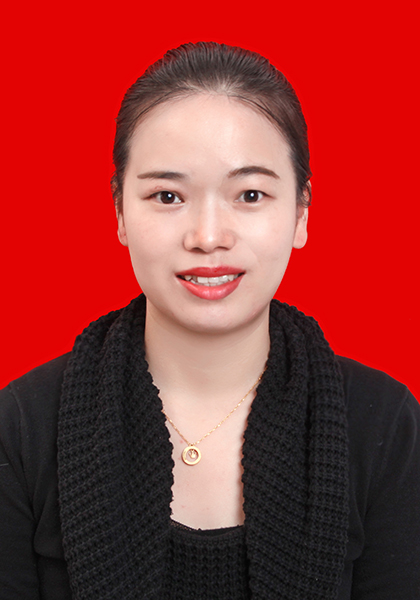
Assoc. Prof.Xiaofang Xia
Member of ACM, IEEE, CCF, CAA; Xidian University, China
Profile: Prof. Xiaofang Xia is currently an associate professor at the School of Computer Science and Technology, Xidian University, China. She was selected for the 8th China Association for Science and Technology Young Talents Entrustment Project in 2022. She received her Ph.D. degree in Control Theory and Control Engineering from Shenyang Institute of Automation, Chinese Academy of Sciences, China, in 2019. She was a visiting scholar at the Department of Computer Science, University of Alabama, USA, from August 2016 to February 2018. Her research interests are mainly in cyberphysical systems, smart grid security, database management systems, and anomaly detection. She serves as the Principal Investigator for nearly 10 research grants, including the National Natural Science Foundation of China, China Postdoctoral Science Foundation, and multiple enterprise cooperation projects. In these areas, she has published over 20 papers in Proceedings of the IEEE, IEEE TIFS, IEEE TII, IEEE TFS, IEEE TASE, IEEE TNSE, IEEE TETC, IEEE IOTJ, IEEE JBHI, Computers & Security, etc.
Title: Big Data Analytics in Smart Grids --- Taking Electricity Theft Detection as an Example
Abstract: As a key platform for implementing China's new energy security strategy, the smart grid not only enhances the utilization of traditional energy through demand response and other methods, but also integrates substantial amounts of distributed clean energy, such as solar and wind power. This integration is essential for achieving China's "carbon peak and carbon neutrality" goals. However, the large-scale incorporation of various new energy sources, devices, and diverse loads, coupled with the extensive participation of various market entities, has significantly increased the variety and scale of data within the smart grid. While this expansion provides a robust data foundation for big data applications in the power system, it also renders the data more heterogeneous and complex. This report will introduce the big data analysis process for multi-source heterogeneous data in the smart grid, and it will examine the technical challenges faced by big data applications in the power system, particularly in addressing practical issues such as electricity theft detection. Finally, the report will outline future prospects for this field.
